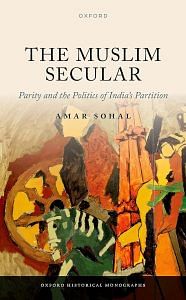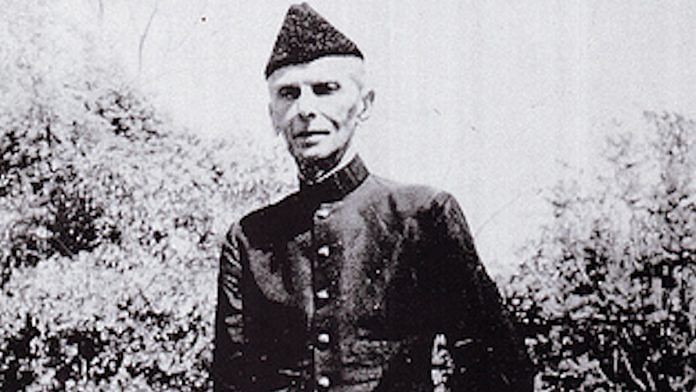As decolonization approached, for these thinkers it was Congress’ vision of an inclusive India, and not the Muslim League’s exclusivist demand for Pakistan, which aligned with their theological principles. In fact, to divide India and Indians into pak (pure) and na-pak (impure) territories and groupings was ‘a repudiation of the very spirit of Islam.’ Speaking to the press a year prior to Partition, Azad added that ‘Islam recognizes no such division and the Prophet says, “God has made the whole world a mosque for me.”’
The retention (as opposed to splintering) of India’s existing lands, and the unification of its Hindus and Muslims into an interactive nation, thus became the first step towards universal peace. However counterintuitive it may initially appear, it was this repositioning of Muslim universalism which enabled Yunus to claim by 1942 that cross-communal territorial nationalism, as it had been reimagined by contemporary Muslims from Saad Zaghloul to Ghaffar Khan, was ‘a much broader vision’ than PanIslamism. But this new national unity did not mean the dissolution of religious particularity into some kind of homogeneous whole.
From the subject-position of Muslim minority, that would almost certainly have meant neglecting (if not forfeiting) Islam in India. Homogenization was thus another violent element of European nationalist modernity to be strongly resisted. And so by an interactive nationalism I mean one which, outside the autonomous realm of religious practice, frequently traversed the boundary between Hindu and Muslim. What particularly interests me in this book, then, is the conceptual character of this inter-, and often extra-, religious interaction as it came to be theorized by both Azad and Ghaffar Khan, as well as the younger Kashmiri nationalist Sheikh Mohammad Abdullah, whose career only began in this late colonial period.
Also read: 2 things that can make India a $10 trillion economy—and beat the ‘poverty veto’
Retaining the separate integrities of Hinduism and Islam, these men nevertheless opened Indians to a nationality founded upon things as diverse as historical inheritance, ethno-linguistic diversity, and ethical reciprocity. What they proposed over the course of the mid-twentieth century, albeit in their own very different ways, was a shared nationality which did away with the old composite idea of distant communities inhabiting one territory. Whatever its historical origins may have been, secularism as a modern ideal has to do with the neutral nation-state’s management of religious plurality, and the preparedness of its diverse citizenry to find ways of living together amicably.
So though it possessed theological justifications, this shared India was a secular nation. Neither was its interactive content reducible to one religious culture or another, nor was affinity to a particular faith-based group made a qualification for membership to its inclusive community of differently religious Indians. As such, it calls for a significant realigning of global Islam as a category. Today, when Islam has come to assume a crucial position as the religious or the theological in many secular, Western societies to which it is a relatively new addition, our international debate about its relationship with the non-religious state is saturated by the modest concerns of Islamism.
If politics is determined by our ability to think and act freely in the temporal world, Islamism is anti-political for it gives sovereignty up to God and is interested, not in human agency, but in maintaining the supremacy of theology in everyday life. Therefore, its critical engagement with secularism has been organized around issues of religious comportment; or, more precisely, the demand that liberalism be applied to Muslims in such a way that it safeguards the freedom and integrity of Islam. I want to claim that there exists, beyond these narrow confines, a deeper intellectual engagement with pluralism which prompts Islam to have grander ambitions than simply its own preservation. It asks instead a much larger question: how do Muslims, without giving up their faith, unite with the other communities of their country to form a cohesive society, as opposed to resigning themselves to cultural apartheid?
Rather than pleading to be secured within the secular, Azad, Abdullah, and Ghaffar Khan illustrate that Muslim political thought was not just capable of theorizing it, but was indeed best positioned to do so, precisely because it spoke from the subject-position of Indian minority. That is to say that secularism which, to be clear, must be understood here not as antireligious but as a call for neutrality and tolerance, has historically been and remains foremostly the prerogative of religious minorities across the world. Breaking with this pattern of understanding, Indian historiography has strangely, but all too frequently, made secularism a Hindu gift which supposedly theocratic Muslims only reluctantly or even unexpectedly accepted.
Though it undoubtedly boasted of eminent and committed Hindu ideologues, Indian secularism was existential for their Muslim peers in quite different and more direct ways. Mine is thus not an identitarian argument but a more generally structural one about the very workings of politics, which a comparison with the question of caste helps to confirm. An anti-caste politics of affirmative action is made thinkable principally by the Dalit minority itself, and through its leaders like the lawyer-politician B.R. Ambedkar.
By concentrating on its traditional untouchable identity, Ambedkar hoped to secure its status as an influential political constituency and, thereby, finally offset that customary discrimination. Similarly, secularism is made politically possible by Muslim endorsement. Whether it came from figures such as Azad, or even their opponents like Jinnah, this endorsement should no longer remain lazily understood as only grudging or surprising. The development of secularism as a concept in modern India has been distinctive.
Whether Hindu or Muslim, Indian secularists, unlike their counterparts in Europe, have chosen to retain religion within the public sphere, rather than consigning it to the private. They have, in other words, rejected the stark constitutional separation between church and state. To balance both individual and communitarian ‘liberty and equality’, Indian secularists call on their state to keep a ‘principled distance’ from various religions operating in open view. The state ‘intervenes or refrains from interfering’ in religious affairs ‘depending on which of the two better promotes religious liberty and equality of citizenship.’
For this flexible and contextual theory, formulated in opposition to a communal principle of governance that favours one religious group over another, decisions made by the state to intervene or not must ‘be guided by non-sectarian principles consistent with a set of values constitutive of a life of equal dignity for all.’¹⁹ Therefore, apart from the legal task of regulating religion, Indian secularism has also been interested in fostering a popular culture of acceptance and fairmindedness. So far removed were our three Muslim protagonists from the European idea of separation that they even made comparative theology a part of their public conversation about Indian life. Just as they jealously guarded the frontiers of Islam to preserve its autonomy, they opened it up to a dialogue with Hinduism.
Also read: Karnataka’s Badami cave temples a monument to multiple faiths – Shaivites, Vaishnavites, Jains
The secular for these figures, therefore, was a shared Indian public space consisting of both religious and non-religious elements. But their thought was secular in yet another way too. For like their great friend and Congress actor-ideologue, Jawaharlal Nehru, they were all socialists who believed that the most fundamental political interests were defined not by faith but by changing economic concerns. And yet, since these secular nationalist arguments were simultaneously concerned with both retaining Islamic universalism and counteracting the disempowering status of religiopolitical minority in an independent nation-state, they were unequivocally Muslim. It is this duality which I wish to capture in my use of the Muslim secular to describe a distinct, rich, and too often ignored secularity located within the grander intellectual tradition of secular Indian nationalism; a tradition which this book hopes to pluralize and extend in such a way as to significantly reconstruct our understanding of it.
Rarely concerned about giving these figures any philosophical integrity of their own, the grand narrative of the Indian nationalist movement has tended to view Azad, Abdullah, and Ghaffar Khan as loyal followers who refused to desert Gandhi and Nehru as communal tension mounted during the final years of the Raj. Viewed largely as subordinates or imitators, they have been almost written out of the vociferous mid-twentieth-century debate about an Indian future to which they were keen and independent contributors. And correcting this marginalization has the power to deepen not just historical, but also contemporary, understandings of the political in South Asia, and especially in the Indian Union.
The unprecedented ascendancy of an exclusionary Hindu nationalism there has only reinforced the foundational nature of its Muslim question, to which, today, the most widely recognized answers belong not to Muslim but to liberal and, of course, illiberal Hindu politicians—both dead and alive. My intention in this book is to counterpoise the reception not just of Gandhi and Nehru as India’s leading secular nationalist ideologues, but also of Jinnah as its unrivalled Muslim thinker-politician.
His triumphant Pakistan Movement, by providing Islam with a nation-state of its own, constituted one path taken by Muslim minoritarian anxieties about liberal democracy in the mid-twentieth century. And though a failure by comparison, the Muslim secular, by generating a non-religious shared nationality that preserved multiple religious (and other) identities within it, represented another. It has often been argued that the Qaid-e-Azam, or Great Leader, as Jinnah was famously christened by Gandhi, also pursued a secular politics of sorts, even after his decisive turn to Muslim nationalism from around 1937.
The irreligious Jinnah was interested not in any theocratic project but in channelling the tide of global politics to elevate the Muslim minority to the insurmountable rank of a sovereign national majority. At this elementary level, his ideas can indeed be described as secular. But once secularism is provided with its thicker definition, of state neutrality and cultures of coexistence, it becomes increasingly unsuitable for Jinnah and appropriate for his opponents. Both before and after the creation of Pakistan, Jinnah’s political statements on the impartial state remained ambiguous.
He undoubtedly imagined minorities living within Pakistan, but he could scarcely theorize coexistence at any length when, at least prior to 1947, his efforts were directed at the opposite task of unpicking Muslim from Hindu to render them sovereign equals. Entitled to identical constitutional treatment, Jinnah claimed that there were two nations inhabiting one subcontinent: Hindu India and Muslim India.
And Islam, however empty and under-theorized a category it was for Jinnah, had to be made the binding agent for this Muslim India. If the theological led Azad to the secular, the reverse was true for Jinnah. The Maulana’s Islamic universalism generated an interactive secular Indian nationalism, while the Qaid’s temporal concerns produced a political theology of a different kind. To be sure, a majoritarian rather than a theocrat, Jinnah nevertheless premised his sovereign political community on Islam’s social reality.
 This excerpt from Amar Sohal’s ‘The Muslim Secular: Parity and the Politics of India’s Parititon’ has been published with permission from Oxford University Press.
This excerpt from Amar Sohal’s ‘The Muslim Secular: Parity and the Politics of India’s Parititon’ has been published with permission from Oxford University Press.



